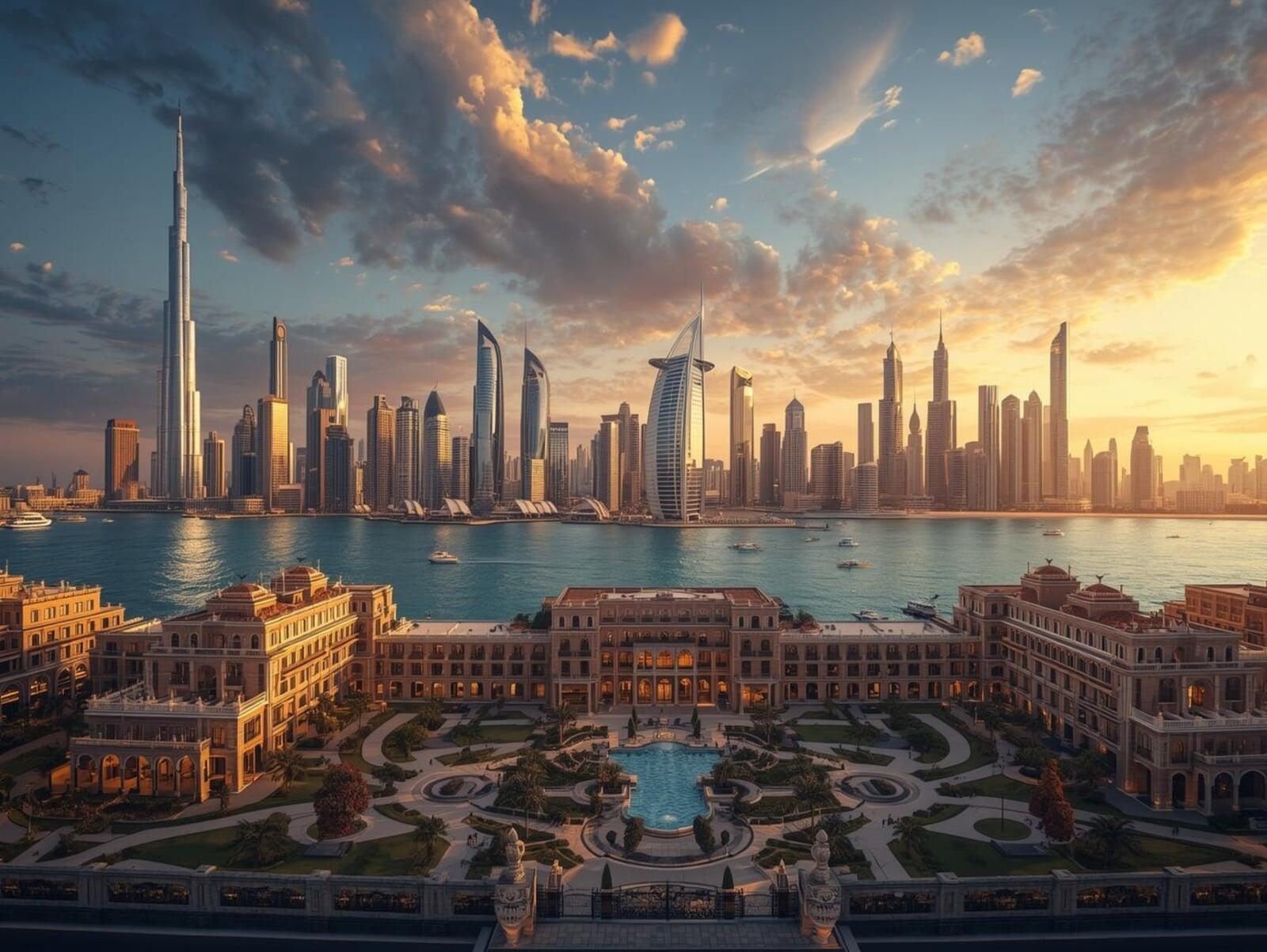If you have ever dreamed of buying a house in a city that has come out of a science-fiction film, then Dubai must have come to your mind. High skyscrapers, luxurious villas on man-made islands, endless shopping and sun-filled beach-this is a city that promises both lifestyle and opportunity. But the thing is: Buying property in Dubai is not the same as buying a house where you have grown up. There are some local quirks, rules, and costs you’ll need to understand if you want your investment—or your new home—to actually make sense.
I’ve spent time talking to buyers, agents, and investors in Dubai, and here’s the human guide I wish I’d had before diving in.

Why Dubai Property Is Such a Big Deal
You might be wondering: “Why not just stick to my home country?” Fair question. Here’s why people keep coming to Dubai:
No Personal Tax: Unlike many countries, there is no tax on the benefit of selling your fare or property in Dubai. If you are thinking for a long period then this is a big advantage.
Places, Places, Places: Dubai is located at an ideal intersection between Europe, Asia and Africa. That makes it easy to travel for business, work, or just a weekend getaway.
Modern Lifestyle: Everything here—from public transport to malls to entertainment—is top-notch. If convenience matters, Dubai delivers.
Strong Rental Yields: In Hot Areas Like Dubai Marina or Downtown Dubai, you can expect 5–9% Rental returns. That's higher than many big cities around the World.
Safe and Stable: Low crime, political stability, and strict laws make this a stress-free place to own property.
So, it’s not just glitz. There’s a strong financial reason to be here too.
Freehold vs. Leasehold: What’s the Difference?
Before signing anything, it is necessary to know how ownership works in Dubai.
Freehold Property
You are the full owner of the property and the land located on it.
Available to foreign buyers in specific areas.
Popular spots: Downtown Dubai, Dubai Marina, Jumeirah Lake Towers.
Leasehold Property
It remains for you for a certain period, usually up to 99 years.
The land stays with the developer or government.
More common outside the freehold zones.
If you’re an international buyer, freehold is usually simpler—less hassle if you ever want to sell.
The Legal Stuff (Don’t Skip This)
I know legal talk can be boring, but skipping this step can cost you. Here’s what to keep in mind:
RERA (Real Estate Regulatory Agency): Think of this as Dubai’s property watchdog. They make sure everything is above board.
Title Deeds: Every property is officially registered with the Dubai Land Department (DLD). This proves it’s legally yours.
Mortgages for Expats: You can usually borrow up to 75% of the property value.
Residency Bonus: Some properties above a certain price can make you eligible for a residence visa—a nice perk if you want to stay longer.
Pro Tip: Work with a RERA-registered agent. Check the title deed. Do not skip this—it’s your protection.
Costs You Need to Factor In
Buying a property isn’t just about the sticker price. Here’s the realistic breakdown:
Property Price:
Studio apartments: AED 300,000–500,000 ($82k–$136k)
Luxury villas: AED 3 million–50 million ($816k–$13.6M)
Registration (DLD Fees): About 4% of the property value.
Agent Commission: Usually 2%.
Service Charges & Maintenance: AED 15–35 per sq. ft. per year, higher for luxury developments.
Mortgage Costs: Interest rates around 5–6%, with a 25% down payment for most buyers.
Where Should You Buy?
Location matters more than you think. Here are some hot spots:
Downtown Dubai: Heart of the city, iconic views, high demand. Great if you want a strong rental income.
Dubai Marina: Waterfront apartments, full of expats and tourists. Perfect for rentals or lifestyle buyers.
Jumeirah Village Circle (JVC): Affordable, quieter, ideal for long-term rental income.
Business Bay: Central, convenient, great for professionals.
Palm Jumeirah: Ultra-luxury villas and apartments for the high-end crowd.
Trends to Keep an Eye On
Dubai is always changing. Here’s what’s hot in 2025:
Recovery After the Pandemic: Both residential and commercial demand is bouncing back.
Expo 2020 Legacy: Areas developed for the event are still attracting attention.
Luxury Boom: High-end villas and apartments are selling faster than ever.
Short-Term Rentals: Great for tourists, especially in Marina and Downtown.
Smart & Green Buildings: Eco-friendly, tech-enabled homes are getting more popular.
Financing Options
Buying with cash is simple, but if you need a loan:
Mortgage Loans: Up to 75% for expat buyers.
Developer Payment Plans: Off-plan properties often let you pay over 2–5 years.
Cash Payment: Faster, avoids interest, and usually simpler for luxury villas.
Risks to Be Aware Of
No market is perfect. Here’s what to watch out for:
Price Fluctuations: There may be an increase or decline in property value.
More Supply: Some areas have too many units, which slows down the price growth.
High Maintenance Fee: Maintenance of luxury properties is not cheaper.
Tenant Rules: Understand rent laws to avoid disputes.
Tips from People Who’ve Done It
Always work with a trusted agent.
Research locations and check rental demand.
Visit the property yourself. Pictures can be deceiving.
Check the developer’s track record before buying off-plan.
Include all costs in your calculations—service charges, registration, maintenance.
FAQs
Q: Can foreigners buy property in Dubai?
Yes, in freehold areas.
Q: Do I need a visa to buy?
Not for the purchase itself, but high-value properties may qualify you for residency.
Q: What’s the average rental yield?
Around 5–9% depending on the location.
Q: Mortgages for expats?
Yes, up to 75% of property value.
Q: Off-plan or ready property?
Off-plan: lower upfront, potential growth. Ready: immediate rental income, less risk.
Final Thoughts
Buying a property in Dubai can be exciting and beneficial - but only when you do it correctly. Take your time, make complete preparation and consult reliable professionals. If you work thoughtfully, you will not only enjoy a great lifestyle, but will also prove to be a strong investment.
Dubai is a city of opportunities. With the right property in the right location, your investment here can grow while you enjoy one of the most vibrant, modern cities on the planet.

